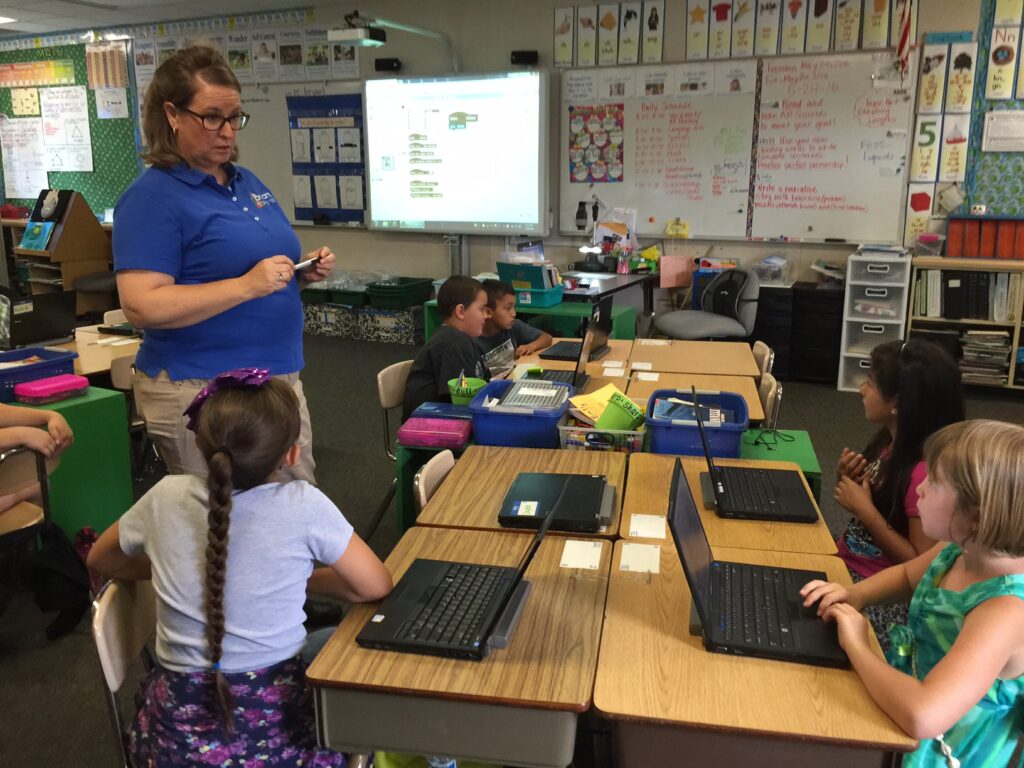
Black teachers: How to recruit them and make them stay

Lessons in higher education: What California can learn

Keeping California public university options open

Superintendents: Well-paid and walking away

The debt to degree connection

College in prison: How earning a degree can lead to a new life

A framework for new science assessments for California’s 6.2 million public school students moved closer to completion last week, as a state advisory panel approved sending the latest draft to the State Board of Education for approval.
At the same time, the panel, known as the Instructional Quality Commission, approved the draft for a final 60-day public comment period.
The framework would implement the “Next Generation Science Standards” – a major overhaul of the nation’s approach toward teaching science in K-12 grades. The standards, more commonly called NGSS, emerged after educational leaders nationwide met in 2010 and pushed for rewriting a science curriculum that had not been changed since the late 1990s.
Approving the framework is a key step in the multi-layered and multi-year process the state has initiated to introduce the standards in every school district in the state. While the NGSS standards create common practices for teaching science, the framework consists of several chapters detailing what is to be taught at specific grade levels: pre-1st grade, 1st and 2nd grades, 3rd through 5th, 6th through 8th, and the high school grades.
After the comment period is over, the next step is incorporating those comments and seeking approval by the State Board of Education – probably at an early November meeting, according a timeline provided by the California Department of Education.
At the core of the new standards – a nearly 2,000-page document – is the belief that science should no longer rely on memorizing facts and writing essays, but on experiments and hands-on exploration of specific subjects.
The standards identify key scientific ideas and practices all students should learn by the end of high school. Instead of teaching physics, biology and other scientific subjects as individual courses, teachers will be expected to teach the subjects in a multi-disciplinary fashion to show their interconnectedness.
The new standards are designed to help students gradually deepen their knowledge of core disciplinary subjects: physical science, life science, earth and space science, and engineering. In the past, the emphasis was vocabulary and subject matter testing and answering end-of-chapter questions.
As one example, instead of memorizing vocabulary on how waves move, students might use a fish tank to observe the size of waves as an external force moves the water. Students would be asked to relate the concept to other areas of science, like radio or air waves, or how light moves through the universe.
At the Instructional Quality Commission meeting last week, the nine members unanimously approved recommendations to move the new science assessments draft forward, putting it before the state board and before the public for yet more comments from June 28 through Aug. 29. The first comment period on the framework ended in January.
In March, the state board agreed to a proposed timeline for the new science standard assessments in which pilot tests would be conducted in Spring 2017, with the first field test scheduled in Spring 2018, and a set of assessments that would be administered to students in Spring 2019.
Besides deepening knowledge of core subjects, one chapter in the framework discusses “access and equity” to the standards as a shared responsibility to include English learners, students living in poverty, students with disabilities and female students.
“A major goal of this science framework is to help alleviate the inequities that have prevented a large number of California’s children and youth from excelling in science and engineering,” according to the framework.
The meeting held last week was for commissioners to make suggested edits to the document.

Legislation that would remove one of the last tests teachers are required to take to earn a credential in California passed the Senate Education Committee.

Part-time instructors, many who work for decades off the tenure track and at a lower pay rate, have been called “apprentices to nowhere.”

A bill to mandate use of the method will not advance in the Legislature this year in the face of teachers union opposition.

Nearly a third of the 930 districts statewide that reported data had a higher rate of chronic absenteeism in 2022-23 than the year before.
Comments
Comments Policy
We welcome your comments. All comments are moderated for civility, relevance and other considerations. Click here for EdSource's Comments Policy.